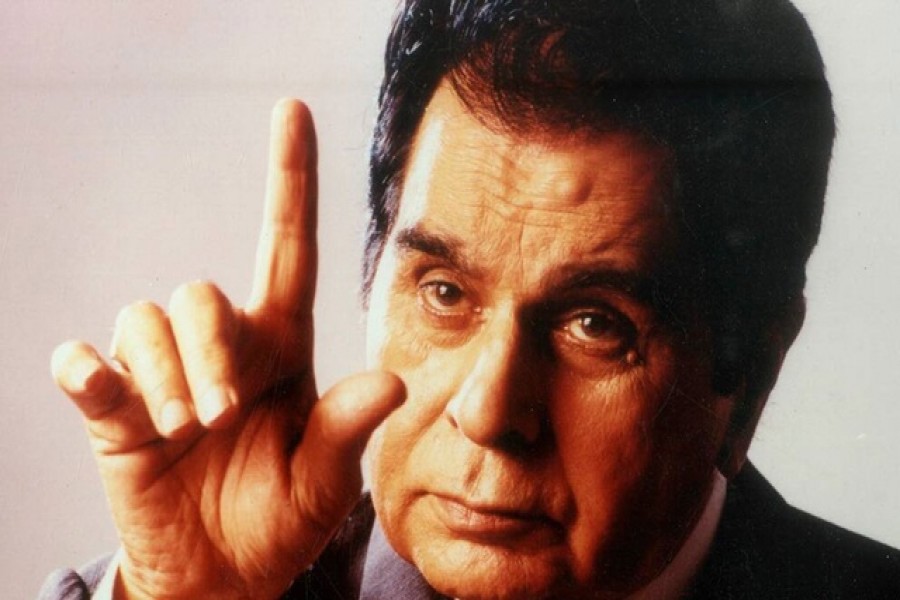
Published :
Updated :

Legendary actor Dilip Kumar, who was popularly known as the tragedy king of Bollywood, died on Wednesday morning, reports The Indian Express.
The actor was 98 and is survived by his wife Saira Banu, a veteran actor.
Dr Jalil Parkar told the news outlet that Dilip Kumar passed away at 7:30 am Wednesday India time. “He passed away due to prolonged illness,” he said. Kumar was admitted to Hinduja hospital in Mumbai after he complained of breathlessness.
Dilip Kumar -- born Yusuf Khan -- was a trendsetter in terms of acting style, and inspired generations of actors across the various streams of Indian cinema.
Regarded as one of the greatest actors that India has ever seen, his career spanned over five iconic decades, bdnews24.com reports citing The Indian Express.
One of the legends of Golden Age of cinema in India, he was considered a master of understatement, and eschewed the loud and theatrical elements of acting.
Some of his best known films are Devdas, Mughal-e-Azam, Gunga Jamuna, Ram Aur Shyam, Naya Daur, Madhumati, Kranti, Vidhaata, Shakti and Mashaal, to name just a few.
Dilip Kumar was born in the Qissa Khawani Bazaar area of Peshawar (present day Pakistan) to Ayesha Begum and Lala Ghulam Sarwar Khan. He debuted in films with 1944's Jwar Bhata, but the film and his work did not garner much attention. It was with 1947's Jugnu, also starring Noor Jehan, that he clinched his first box office hit.
In 1949, he starred in Andaz with Raj Kapoor and Nargis, and it was that film that made Dilip Kumar a big star. He was the first actor to win the Filmfare Award for Best Actor in 1954, and won it a total of 8 times. He and Shah Rukh Khan jointly hold the record for most Filmfare trophies.
Dilip Kumar is listed in the Guinness World Records for winning the maximum number of awards by an Indian actor. He is also credited as the first method actor in India. He was honoured with the Dadasaheb Phalke Award in 1994 and Padma Vibhushan in 2015.
Dilip Kumar was last seen in the 1998 film Qila. His death has left a gaping void in the film industry.


 For all latest news, follow The Financial Express Google News channel.
For all latest news, follow The Financial Express Google News channel.